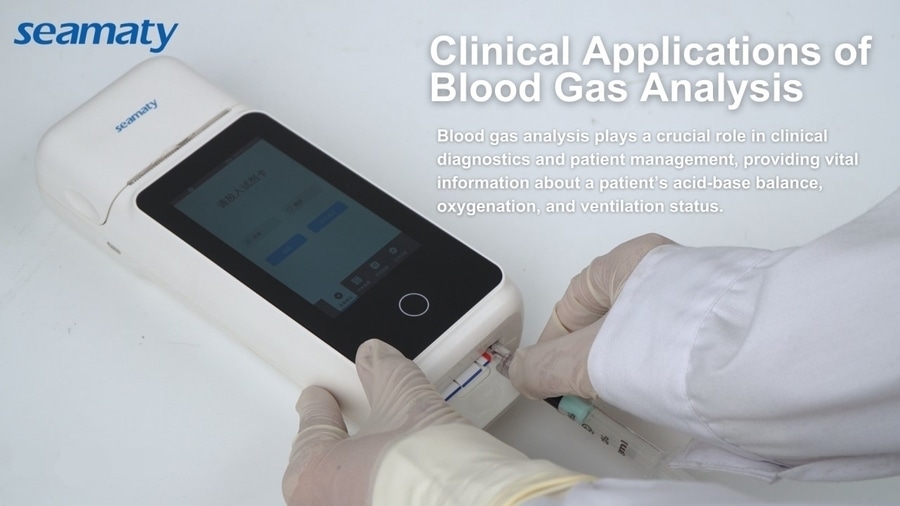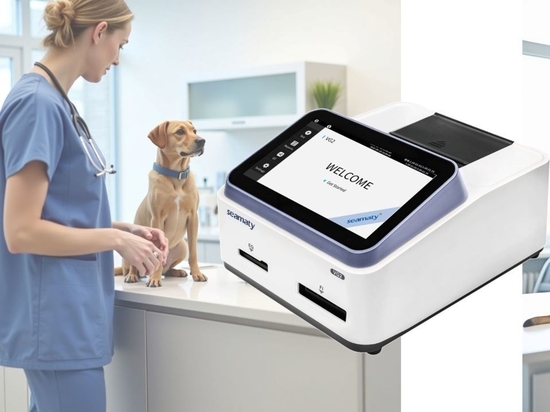
#Industry News
Handheld vs. Benchtop – Which One is Right for You?
Battle of Blood Gas Analyzers
Introduction
A blood gas analyzer is a medical device used to analyze arterial blood, providing critical data on oxygen, carbon dioxide, acid-base balance, electrolytes, and more. These devices play a vital role in diagnosing respiratory diseases, monitoring patient conditions, evaluating treatment effectiveness, and assessing acute disease risks.
Currently, the market offers two main types of blood gas analyzers: portable (handheld) and benchtop models. But which one best suits your specific needs? This article will explore the advantages and disadvantages of both benchtop and handheld blood gas analyzers to help you make an informed choice.
Advantages of Handheld Blood Gas Analyzers
1. Portability and Flexibility
The biggest advantage of handheld blood gas analyzers is their compact and lightweight design, making them easy to carry. They are ideal for emergency medical care, mobile medical units, and facilities requiring frequent relocations. For example, during the transport of critically injured patients in an ambulance, medical personnel can quickly obtain real-time blood gas data with a handheld device, allowing immediate treatment adjustments and maximizing the chances of saving lives.
2. Ease of Use
Most handheld blood gas analyzers feature user-friendly designs with intuitive interfaces, making them easy to operate. Medical staff can use them with minimal training, as the streamlined interface and fewer operational steps help reduce errors and testing delays.
3. Fast Results
Handheld blood gas analyzers deliver test results in just a few minutes, which is crucial for situations requiring rapid assessment of a patient's condition. This enables doctors to make timely decisions, such as adjusting ventilator settings or correcting acid-base imbalances, ensuring prompt and effective medical interventions.
Advantages of Benchtop Blood Gas Analyzers
1. High-Precision Analysis
Benchtop blood gas analyzers are renowned for their superior accuracy and repeatability, making them ideal for complex blood gas analysis and long-term monitoring. They are the preferred choice for research applications and clinical scenarios that demand highly precise data.
2. High Sample Processing Capacity
With advanced data processing capabilities and larger sample throughput, benchtop analyzers can handle multiple samples simultaneously. This makes them well-suited for high-volume environments such as central laboratories in large hospitals.
3. Comprehensive Testing Capabilities
Compared to handheld models, benchtop blood gas analyzers typically offer a wider range of testing parameters. In addition to standard blood gas metrics, they can measure electrolytes, glucose, lactate, hemoglobin, and more, providing a comprehensive assessment of a patient’s metabolic status. This is particularly beneficial for patients with multiple comorbidities or those in special physiological conditions, allowing doctors to obtain a more complete picture for diagnosis and treatment planning.
How to Choose the Right Blood Gas Analyzer?
1. Usage Scenarios
If you frequently conduct blood gas tests in mobile environments—such as emergency response, field medicine, or community healthcare—then a handheld blood gas analyzer is the better choice. Its flexibility and portability allow for on-the-go testing whenever needed.
Conversely, if the device will be used in fixed hospital locations such as laboratories, ICUs, or operating rooms, where high precision, comprehensive functionality, and high sample capacity are required, a benchtop blood gas analyzer is more suitable.
2. Accuracy Requirements
For applications requiring extremely high accuracy—such as scientific research or diagnosing complex conditions—a benchtop blood gas analyzer offers superior precision and stability.
However, for routine clinical screenings and rapid assessments, a handheld device like the Seamaty SG1 Handheld Blood Gas Analyzer provides sufficient accuracy while offering the advantage of speed and convenience.
3. Cost and Budget
Generally, handheld blood gas analyzers are more cost-effective due to their compact and simplified design, making them a budget-friendly option for smaller healthcare facilities or personal use.
Benchtop analyzers, on the other hand, incorporate advanced technology and extensive features, which typically come at a higher price. Therefore, choosing between the two depends on your financial resources and specific operational needs.
4. Training and Technical Support
Since different types of blood gas analyzers vary in operational complexity and maintenance requirements, it is essential to consider the training and support provided by the manufacturer.
Handheld devices usually require minimal training, whereas benchtop models may demand more in-depth instruction to ensure proper use. Additionally, reliable technical support is crucial for minimizing downtime in case of equipment malfunctions, ensuring smooth and continuous operation.
Conclusion
Both handheld and benchtop blood gas analyzers have their own unique advantages and application scenarios. When selecting a device, the primary factors to consider are accuracy, reliability, and suitability for your specific needs.
By weighing factors such as usage environment, precision requirements, ease of operation, and budget, you can determine the best blood gas analyzer for your practice. Whether you prioritize the portability of a handheld device or the advanced functionality of a benchtop model, the ultimate goal is to enhance the quality of medical services and improve patient outcomes.






